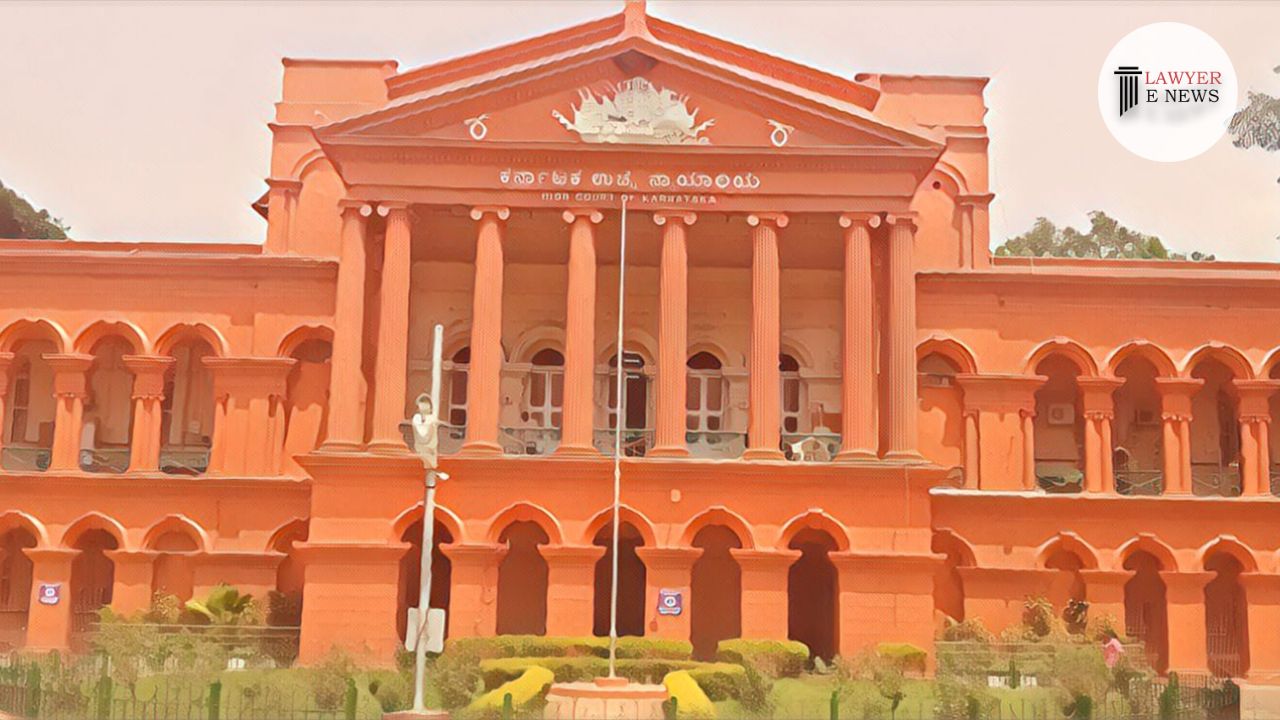-
by sayum
14 February 2026 2:22 PM



Karnataka High Court Confirms Conviction Under POCSO Act, Reduces Sentence Due to Lack of Reasoning for Maximum Punishment
The High Court of Karnataka at Bengaluru has partially upheld the conviction of Manikanta @ Puli under the Protection of Children from Sexual Offences Act (POCSO Act) and Indian Penal Code (IPC) for the sexual assault of a minor. The bench, comprising Justices Sreenivas Harish Kumar and C.M. Joshi, confirmed the conviction but reduced the sentence from life imprisonment to 10 years rigorous imprisonment, citing inadequate reasoning for the maximum sentence.
Manikanta @ Puli, who was acquainted with the minor victim, lured her to his home under the pretext of a ritual on June 16, 2016. He then sexually assaulted her repeatedly, threatening her life and the lives of her family members to ensure her silence. The crime came to light when the victim started fainting at school, leading to a medical examination that revealed her pregnancy. A DNA test confirmed that the accused was the father of the child.
The defense challenged the admissibility of Ex.P8, the extract of the school admission register, arguing that it lacked evidentiary value since the author was not examined. The court dismissed this argument, stating that Ex.P8, issued by the headmaster (PW5), is a public document under Section 74 of the Indian Evidence Act, and its extract can be produced as secondary evidence under Section 65€. The court emphasized that the headmaster, as the custodian of the register, was competent to vouch for its contents. “The entries made in the school admission register cannot be disbelieved merely because the headmaster at the time of the admission was not examined,” the bench noted.
The defense contended that Ex.P8 should be inadmissible under Section 162 of the Cr.P.C. The court clarified that Section 162 applies to statements made during police investigations and does not cover public documents like the school admission register. “Ex.P8, being an extract of a public document, is not a statement made under Section 161 Cr.P.C. and thus not hit by Section 162 Cr.P.C.,” the judgment stated.
The defense argued that the conviction was vitiated due to the failure to highlight the victim’s age during the Section 313 Cr.P.C. examination. The court observed that while the age of the victim is not an incriminatory fact in itself, the circumstances of the sexual assault on a minor were adequately brought to the accused’s notice. The bench remarked, “Any lapse at the Section 313 stage is curable by the appellate court.”
The court reaffirmed the principles of evaluating evidence in cases involving sexual violence. It reiterated that a conviction can be based on the victim’s testimony alone if it is reliable and trustworthy. The court noted that the victim’s account was consistent and corroborated by medical evidence and the DNA report. “The DNA report confirmed the accused as the father of the victim’s child, corroborating the sexual assault,” the court stated.
Justice Sreenivas Harish Kumar remarked, “The production of the school admission register extract as secondary evidence is sufficient and credible to prove the age of the victim.”
The High Court’s judgment reinforces the judiciary’s stance on upholding convictions in cases of sexual violence against minors, emphasizing the admissibility and credibility of school admission registers as evidence. By modifying the sentence to 10 years rigorous imprisonment, the court balanced the need for a stringent penalty with the requirement for clear reasoning. This decision is expected to guide future cases in interpreting evidentiary standards under the POCSO Act.
Date of Decision: June 14, 2024
Manikanta @ Puli vs. State of Karnataka and Smt. G.C. Sushmitha
